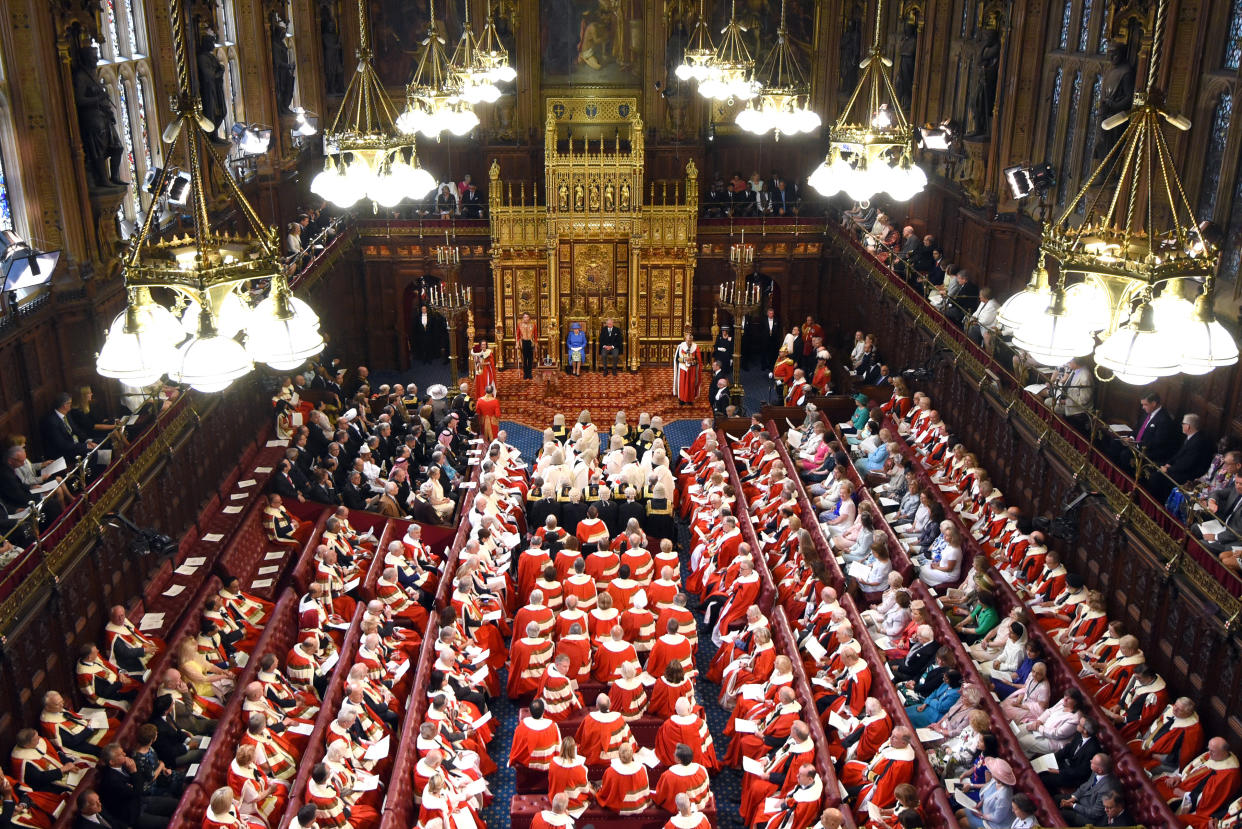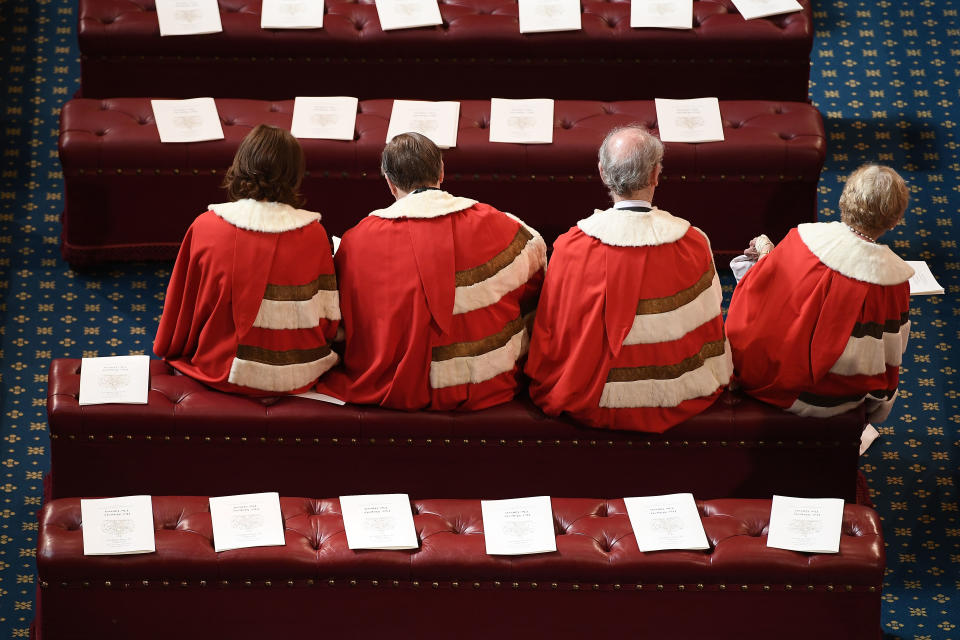This is why (some) Brexiteers hate the House of Lords

Theresa May today said that she supports plans to slash the size of the House of Lords.
The Prime Minister told her cabinet that all parties need to do more to encourage peers to retire, and that automatic entitlement to peerages for holders of certain high offices will be discontinued.
The issue of Lords reform has been simmering for a number of years. A cross-party committee in 2017 recommended shrinking the chamber by more than a quarter and limiting terms to 15 years.
Critics argue that the Lords, made up of hundreds of unelected peers, is undemocratic. And of these critics, some of the loudest voices come from Brexit supporters.
Why do Brexiteers hate the House of Lords?
In March 2017, the House of Lords voted down the government twice over Brexit.
First the chamber voted that ministers should guarantee the rights of EU nationals to stay in the UK after Brexit.
Then they voted by a majority of 98 to give Parliament a veto on the final Brexit deal – a clause that some argue amounts to a veto on Brexit.
The animosity continues when it comes to the EU Withdrawal Bill – the key piece of legislation that will mean that European law will no longer apply in the UK after Brexit.
The bill will copy over current EU law onto the UK statute books to allow for a smooth transition. But the laws can then be amended or repealed by the government in the future.
The House of Lords is a strongly pro-EU institution. It also has the power to significantly alter – or even entirely scupper – the withdrawal bill before it can be enshrined into law.

Senior peers have called the bill in its current form ‘constitutionally unacceptable’ and ‘fundamentally flawed’.
A Lords committee report slammed the bill’s ‘Henry VIII powers’, which would allow ministers to change laws with minimal scrutiny.
Pro-Remain peers have spelled out their wish to inflict a mauling on the legislation and anti-Brexit lobby voices are appealing to the Lords to bog down the bill to disrupt the EU withdrawal process.
What do Brexiteers think?
Prominent hard-Brexiteer Jacob Rees-Mogg warned the upper chamber against putting the brakes on Brexit.
He said: ‘If the Lords in their wisdom – and a lot of them are very pro-European – decide to try and frustrate the democratic will of the people, both as expressed by the House of Commons and by the referendum, the Lords will, as an institution, get into difficulties.’

He further cautioned the Lords against sparking a second Brexit referendum, saying: ‘It would be seen as a blocking amendment.
‘But I also think then Leave would win, at which point the Lords would look stunningly ridiculous and there would be very great pressure for fundamental reform.’
MOST POPULAR TODAY ON YAHOO
Pilot forced to make emergency landing after passenger’s smelly farts causes fight
Inside the home of ‘depraved’ Matthew Falder as one of UK’s most prolific paedophiles is jailed
Woman filmed shouting at mother and son on Delta Airlines flight has lost her job
Shocking pictures show mangled wreckage of Ferrari after schoolboy, 13, killed in horror crash
Parents jailed after abusing baby boy so badly he had both legs amputated at SIX WEEKS old
Nigel Farage has gone a step further, calling for the House of Lords to be binned entirely after it voted down the government twice last year.
And there is public support for scrapping the Lords. A petition to replace the House of Lords with an elected chamber reached 128,000 signatures.
Will the House of Lords actually block Brexit?
Realistically there is no chance of the Lords overturning the result of the Brexit vote.
The Lords are aware of their position as a ‘revising’ chamber, and it would be extremely unusual if they were to intervene in legislation in such a severe way.
Also, to block Brexit would require an about-turn in policy from Labour. Jeremy Corbyn’s party line is currently support for leaving the EU, and blocking Brexit completely would require Labour peers to be instructed vote in this way by party whips.
However, as the EU Withdrawal bill reaches committee stage in the Lords, a vast number of changes will be tabled. So far, 83 pages of alterations have been suggested by peers.
The bill begins the committee stage in the House of Lords this week.

 Yahoo News
Yahoo News 


